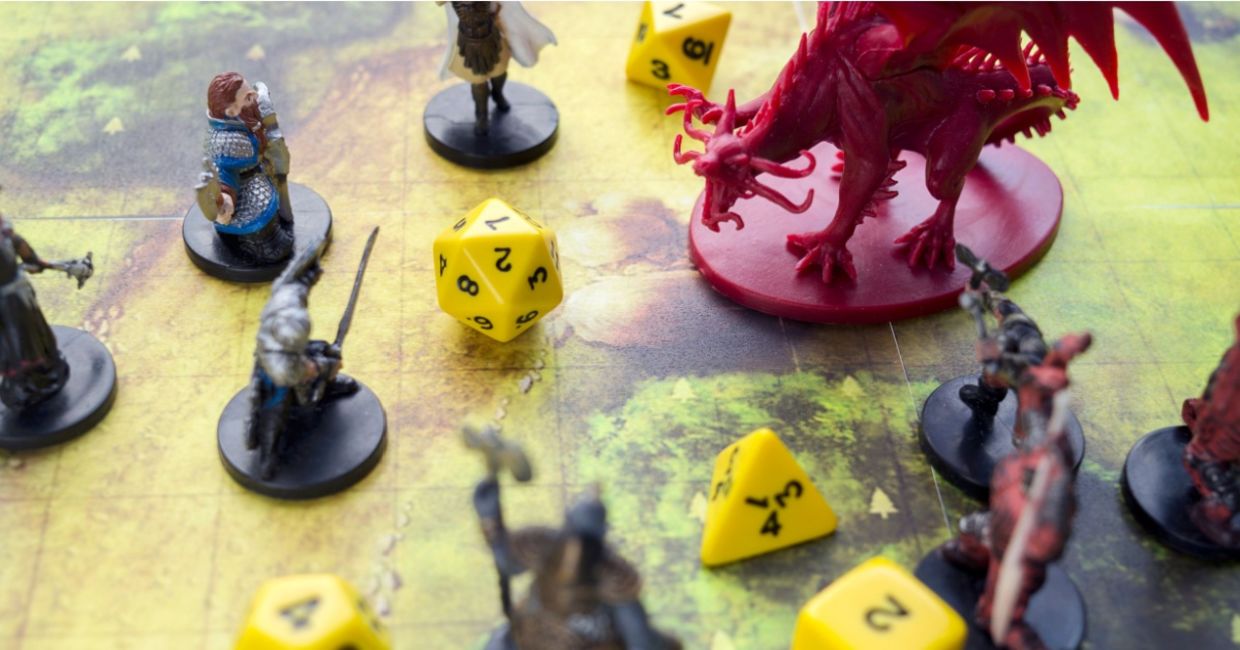
(Niferure / Shutterstock.com)
Dungeons and Dragons (D&D), isn’t new. Launched in the ‘70s, it’s a collaborative, non-competitive role-playing board game. In it, each player can think up a character with its own strengths, magical powers and weaknesses. It will work with others to navigate a fantasy world of adventure and find solutions, as a Facebool post from Neurodivergent Empowered explains.
But a new study indicates that playing D&D and other tabletop role-playing games (TRPGs) can help players with autism in social interactions, technology trends magazine, ars TECHNICA, reports. The study shows that D&D offers players with autism a life-changing space, in which they can build meaningful connections, self-esteem, and even reframe their own narrative through role playing.
In actual social situations, neurodivergent people must navigate the plethora of unwritten rules which they typically find more difficult, and so anxiety-inducing. Games like D&D, however, offer greater freedom to forge meaningful connections and create and explore personas and interactions in a fantastical world. This is an experience that can serve as a “social lubricant” for players, as there is less uncertainty about how to behave in a game, with clear rules instead.
As Inside Gaming reported in a video from 2017, skills such as communicating, one that people with autism most struggle with, compromise, trust, and conflict and consequence, are all part and parcel of D&D.
D&D positives can “bleed” into participants’ real-world lives
Published in the journal Autism, the researchers behind this year-long qualitative study aimed to explore how autistic players experience D&D when playing with other players with autism. They recruited a small sample of eight participants with a mean age of 23 years through social media ads within the D&D, Reddit and Discord online communities, News Medical reports.
As the study abstract outlines, it investigates the ability of TTRPGs to provide a “safe space where autistic adults could develop relationships with other autistic adults while engaging in character and world-building.” This is an objective the researchers feel that their study showed to be successfully achieved.
The study authors report encouraging feedback from participants, particularly about the positive benefits gained from playing D&D. These include a friendly environment that allows these adults to feel free from social pressures, as they can lean on the supportive “reference sheet” on social interactions that the game provides.
One interviewed participant reported how playing D&D allowed them to view typical aspects of their behavior, enacted through their gaming character, through another lens. The study authors detail how interviewees often compared this to playing a part in a story or taking on a character’s role, such as acting in a play: “This separation from the character allowed the participant to go beyond their ordinary selves and explore new ways of dealing with situations,” they explain.
Being able to “rewrite” their own personal stories outside the game by adopting some of the different traits of their gaming character is a liberating psychological phenomenon known as “bleed.”
Time for a healthy dose of myth toppling
According to study co-author, University of Plymouth psychologist Gray Atherton, “There are many myths and misconceptions about autism, with some of the biggest suggesting that those with it aren’t socially motivated, or don’t have any imagination.” Instead, he explains, “Dungeons & Dragons goes against all that, centering around working together in a team, all of which takes place in a completely imaginary environment. Those taking part in our study saw the game as a breath of fresh air, a chance to take on a different persona and share experiences outside of an often challenging reality.”
This mental leap, which is really a sense of escapism, he enthuses, puts participants at ease, with many reporting trying to apply aspects of their different persona into their day-to-day lives.
At the same time, ars TECHNICA does underline that earlier research shows that autistic people are more likely to feel lonely and have smaller social networks. Their wish for better social connection encourages many to “mask” the neurodivergent traits they have in their eagerness to not be shunned in relationships, with awkwardness in real-world conversations, and “serial rejection” something shared by several study participants, Atherton reveals.
Study co-author, Liam Cross, reported to ars TECHNICA, of hearing from many families with concerns that their teenagers with autism are over-immersed in gaming. He says, however, that these young people should not be judged based on neurotypical experiences. These teens, he believes, are not just enjoying gaming and other hobbies, but gaining confidence and other skills from them, or as he puts it: “our work suggests it can enable people to have positive experiences that are worth celebrating.”
YOU MIGHT ALSO LIKE:
From Tragedy to Tribute: A Sister's Mission to Preserve her Brother's Memory
Share the Adventure!
An Autistic Man Posts Online for Work and Gets 7 Million Views!







